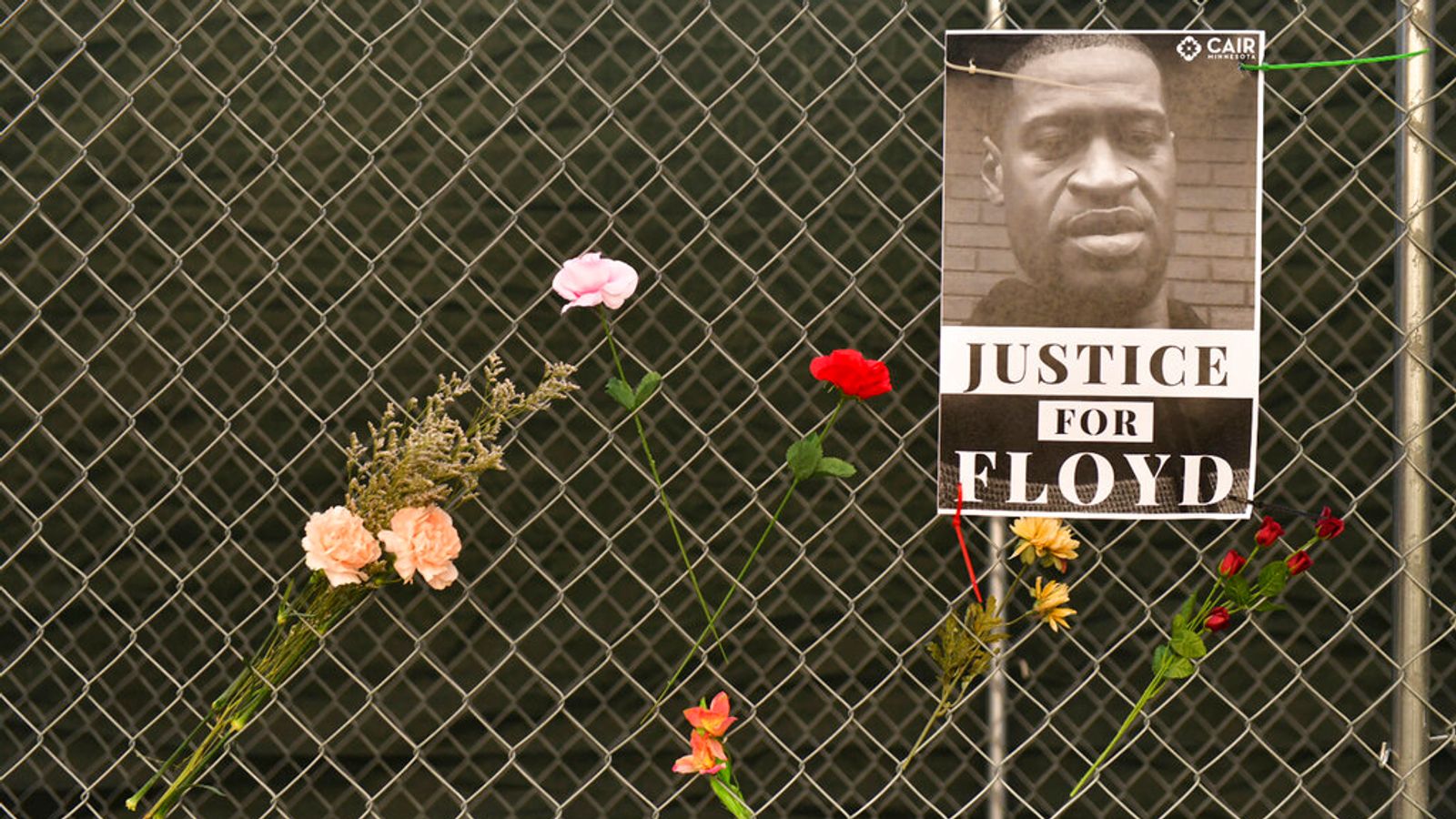Minneapolis City Council will pay George Floyd’s family $27m (£19.4m) to settle a civil lawsuit over his killing in police custody.
The settlement includes $500,000 for the neighbourhood where Mr Floyd was arrested, the council said.
Mr Floyd’s family filed the federal civil rights lawsuit against the city last July, alongside ones against police officer Derek Chauvin and three others that were fired and criminally charged over his death.
The civil dispute is separate from the ongoing criminal trial, where the jury is being selected and Chauvin is charged with third and second degree murder as well as manslaughter.
At a news briefing in Minneapolis on Friday, the family’s lawyer Ben Crump described his death on 25 May last year as a “watershed moment for America” and the civil ruling as “historic and significant”.
Mr Crump thanked the mayor and city council for their “responsible leadership” and said “history will judge them” on their actions.
“The family of George Floyd and I are very grateful to Mayor Fry and the city council for not just saying you care about George Floyd, but showing that you care about George Floyd,” he said.
“They have shown that the life of George Floyd and black lives matter to them.”
He also urged protesters to remain calm and non-violent as the trial gets underway.
Mr Chauvin, who is white, pressed his knee into the back of Mr Floyd’s neck for more than eight minutes, prompting cries of “I can’t breathe, I can’t breathe” from him before he was declared dead.
The civil case alleged that Chauvin and the other three officers officers violated Mr Floyd’s rights when they restrained him, and that the city allowed a culture of excessive force, racism and impunity to flourish in its police force.
In the criminal case, prosecutors have succeeded at levelling a charge of third degree murder, despite attempts to throw it out.
Third-degree is less serious than second-degree murder and is described as an unplanned, unintentional killing – while second-degree murder can be intentional or unintentional.
Although second-degree murder would involve more prison time if Chauvin is convicted, legal experts say an additional third-degree murder charge would boost the chances of a murder conviction because the burden of proof is lower.
To win a third-degree murder conviction, prosecutors would only have to show that Mr Floyd’s death was caused by an act that was obviously dangerous, though not necessarily a felony. This would carry a maximum sentence of 25 years.
Chauvin’s trial begins on Monday.


